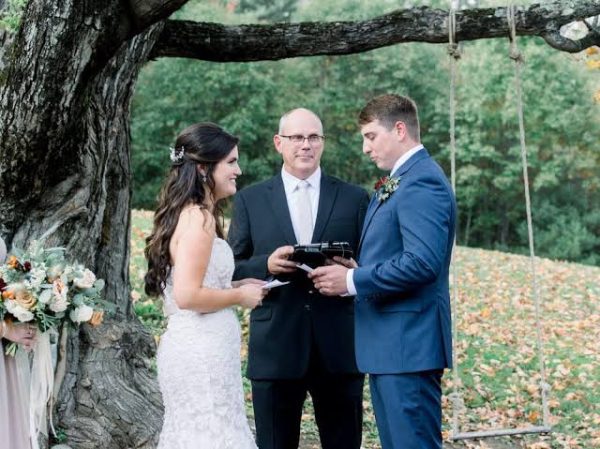Justice of the Peace Marriages
One increasingly popular choice are Justice of the Peace (JP) marriages.When it comes to tying the knot, couples have a plethora of options, ranging from grand ceremonies to intimate elopements. This blog will explore what a Justice of the Peace marriage entails, its benefits, and how it can be a meaningful yet straightforward way to say “I do.”
What is a Justice of the Peace?
A Justice of the Peace is an official who has the authority to solemnize marriages and perform various legal duties. They are typically appointed by the state and can conduct ceremonies in different settings, from a courthouse to a scenic park. JPs often play a significant role in civil weddings, providing couples with a no-frills option for their nuptials.
The Benefits of a Justice of the Peace Marriage
1. Simplicity and Convenience
One of the main attractions of a JP marriage is its simplicity. Couples can often schedule a ceremony with minimal planning, making it a great option for those who prefer a low-key approach. With fewer details to manage, you can focus on what truly matters—your commitment to each other.
2. Affordability
Traditional weddings can quickly become expensive, with costs for venues, catering, and décor adding up. Opting for a JP marriage can save couples a significant amount of money, allowing them to allocate resources elsewhere, whether for a honeymoon or future home.
3. Flexibility in Venue Choices
Justice of the Peace marriages can take place in various locations, depending on local laws. Whether you envision a ceremony in your backyard, a local park, or a courthouse, JPs offer flexibility that traditional wedding venues may not. This adaptability allows couples to choose a setting that holds personal significance to them.
4. Personalization
Many Justices of the Peace offer personalized ceremonies, allowing couples to include their own vows, readings, and rituals. This can make the ceremony feel more meaningful and tailored to the couple’s unique relationship.
5. Quick and Efficient
For couples looking to marry quickly, a JP can provide a faster alternative. With less planning and no need for a long guest list, couples can often secure an appointment and marry within days or weeks, rather than months.
What to Expect During a JP Marriage Ceremony
The typical JP marriage ceremony is straightforward and can vary in length from a few minutes to half an hour, depending on how much personalization the couple wishes to include. Here’s what you can generally expect:
1. Legal Requirements
Before the ceremony, couples must ensure they have obtained the necessary marriage license, which typically requires identification and a small fee. Each state has its own regulations, so it’s essential to check local requirements ahead of time.
2. The Ceremony
The Justice of the Peace will officiate the ceremony, guiding the couple through the process. This usually includes the reading of vows, the exchange of rings, and any personal elements the couple wishes to incorporate.
3. Signing the Marriage License
After the ceremony, the JP will sign the marriage license, which must then be filed with the appropriate local government office to make the marriage official.
A Justice of the Peace marriage offers a convenient, cost-effective, and flexible alternative to traditional weddings. Whether you’re looking for a simple ceremony or a personalized experience, a JP can help create a meaningful occasion that honors your commitment to one another. For couples who prioritize love over extravagance, a JP marriage may be the perfect choice to start their journey together.
Frequently Asked Questions about Justice of the Peace Marriages
1. What is a Justice of the Peace?
A Justice of the Peace (JP) is a public official authorized to perform various legal duties, including officiating weddings. JPs are typically appointed by the state and can conduct ceremonies in different locations.
2. How do I find a Justice of the Peace?
You can find a JP through your local government’s website, courthouse, or by searching online. Many JPs have personal websites or social media pages where you can learn more about their services and availability.
3. What are the requirements for a JP marriage?
Requirements can vary by state but typically include obtaining a marriage license, which may require identification and a fee. It’s essential to check your state’s specific laws regarding marriage licenses and officiants.
4. Can we personalize our ceremony with a Justice of the Peace?
Yes! Many Justices of the Peace allow couples to personalize their ceremonies by including their own vows, readings, and rituals. Discuss your preferences with your JP beforehand to ensure they can accommodate your wishes.
5. Where can a JP marriage ceremony take place?
JP marriages can take place in various locations, including courthouses, parks, private homes, or any location that complies with local regulations. Some JPs may also offer to travel to a specific venue for the ceremony.
6. How much does it cost to hire a Justice of the Peace?
Fees for JPs can vary widely depending on location and services provided. It’s a good idea to ask about their fees upfront and whether additional costs (such as travel or special requests) may apply.
7. How long does a JP marriage ceremony last?
The duration of a JP marriage ceremony can vary, typically lasting between 10 to 30 minutes. The length will depend on the couple’s preferences and any personalized elements included in the ceremony.


Leave a Reply